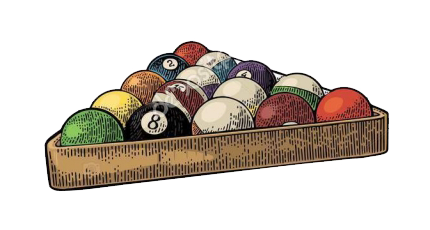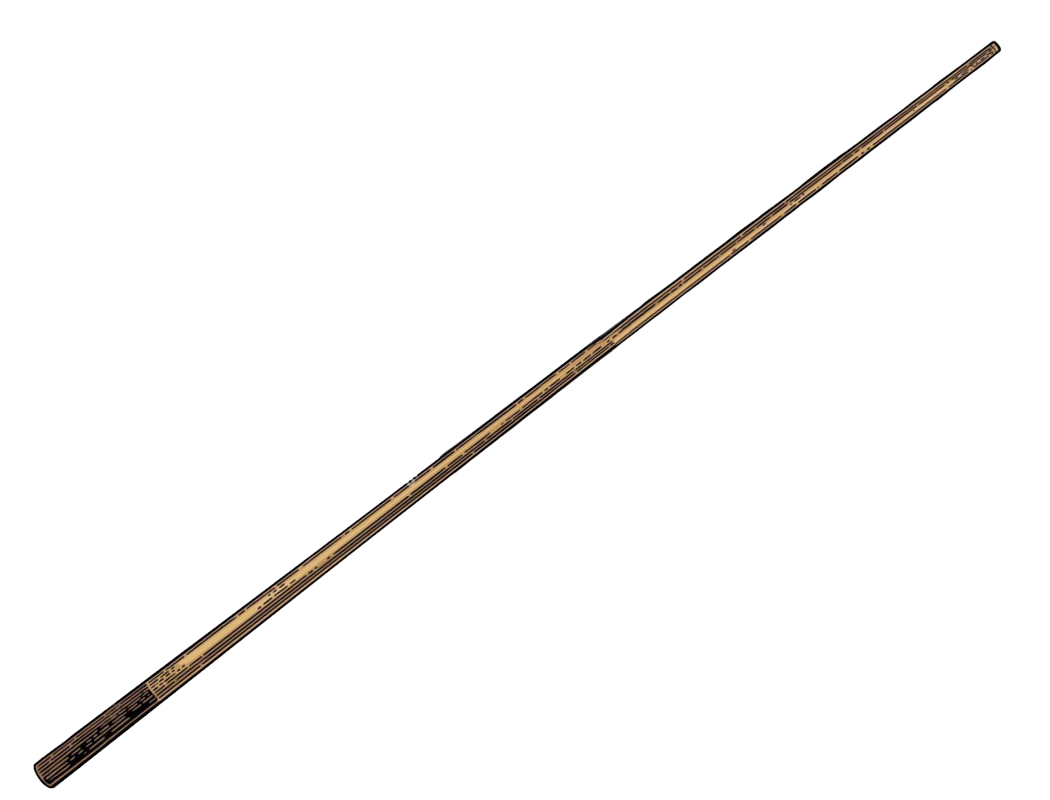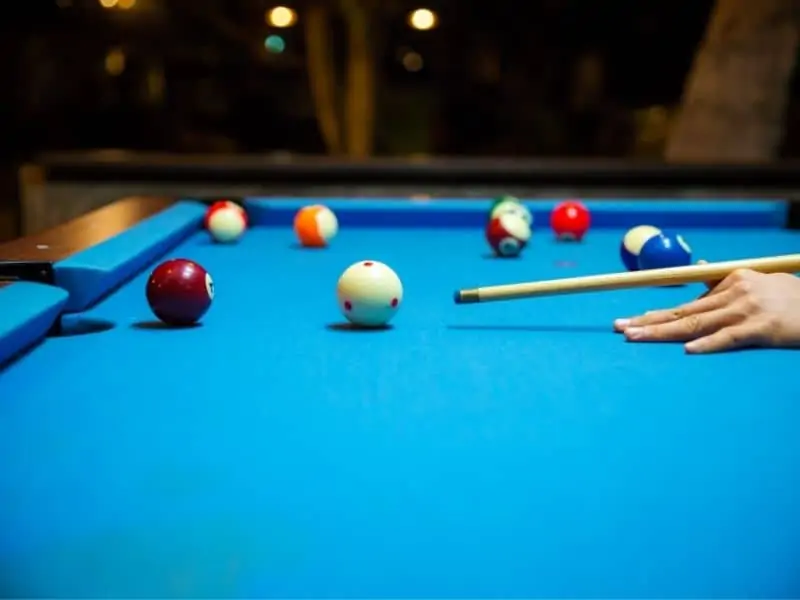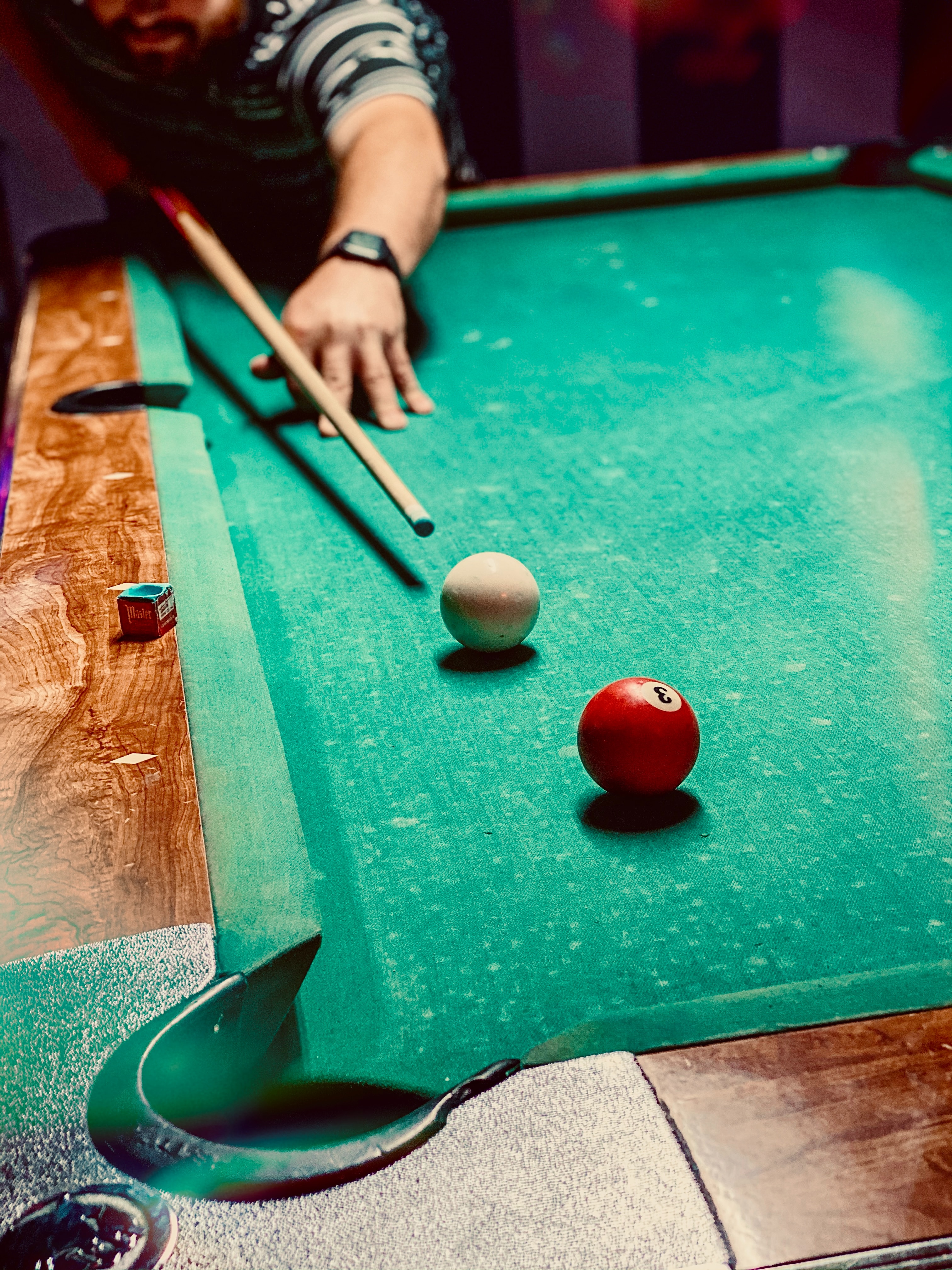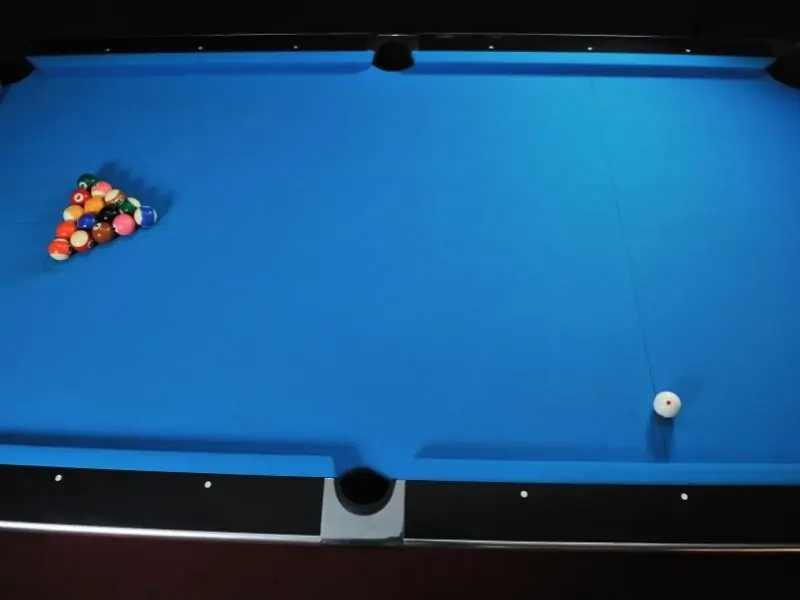Nearly every pool player has been there at one time or another. You’re attempting a precise shot. One of your balls is close to a few of your opponent’s balls, but you think you can make it. But then, the unexpected happens, and the pool gods are not on your side. What happens if you hit your opponent’s ball in?
The Short Answer
Legal Shot in 8-Ball
- Situation: You hit your ball first and cause both your ball and your opponent’s ball to go into a pocket.
- Outcome: It’s a legal shot. You continue your turn but inadvertently help your opponent.
Ball in Hand Foul in 8-Ball
- Situation: You hit your opponent’s ball first and knock it in.
- Outcome: Most rulebooks deem this a “ball in hand” foul. Your opponent gets to place the cue ball anywhere on the table.
Hitting Both Balls at Once
- Situation: You hit both balls simultaneously and didn’t strike your ball first.
- Outcome: Typically considered a foul, but rules may vary.
Hitting Your Ball First but Only Sinking the Opponent’s Ball
- Situation: You hit your ball first but only sink your opponent’s ball.
- Outcome: The outcome depends on specific rules. It might be considered a legal shot in some rule sets.
Familiarizing yourself with these scenarios helps prevent misunderstandings during a game. Always consult the specific rulebook or house rules you are playing by. Knowing exactly what happens if you hit your opponent’s ball in can be essential for both casual games and competitions.
In the rest of this article we’ll dive deeper into the specifics.
The Different Rules of 8-Ball
As most people know, there are many different rulebooks people play by. From the US Professional Poolplayers Association (UPA) and the World Pool-Billiard Association (WPA) to the Billiard Congress of America (BCA), to the rules you and your friends play by at the local bar, otherwise known as Bar Rules.
Most of the official professional associations are pretty much the same in the different rules regarding hitting an opponent’s ball into a pocket. But, bar rules are another beast altogether. There is so much variation when it comes to bar rules, it’s always best to just clarify the rules before you start playing, or, as you go along if it’s a friendly game.
Deciding on Groups (Stripes or Solids)
When the table is open, there’s no such thing as an “opponent’s ball.” Most rulebooks state that the table is open until one player makes a legal shot of either solids or stripes, therefore declaring that group for that player. The opposite group then belongs to the opposing player.
Until this happens, any of the balls on the table, excluding the 8-ball, are open. But once the players have their own grouping of either solids or stripes, hitting the opposing player’s ball into a pocket can either be counted as a foul, a loss of turn, or even a legal shot.
Legal and Illegal Shots
The easiest way to think about these types of shots is by knowing what is considered a legal and an illegal shot.
Legal Shots
Legal shots are the ones where you hit your ball without committing a foul. According to some rules, players must first call their ball and pocket before shooting, unless the shot is obvious. Failing to do so will result in a foul.
In games where you don’t have to call your shots, you still have to hit a ball of your group with the cue ball first.
Confused by what constitutes a scratch? Click here for the clarity you need.
Illegal Shots
Illegal shots are those where you hit one of your opponent’s balls with the cue ball before contacting one of yours. If you’re playing a call shot game, you must hit the ball you called first. If you hit another one of your balls, it’s considered a foul and a loss of turn.
Any balls pocketed on an illegal shot (aside from the 8-ball, which would end the game) remain in the pockets and count for their respective players.
Legally Sinking Your Ball and Your Opponent’s at the Same Time
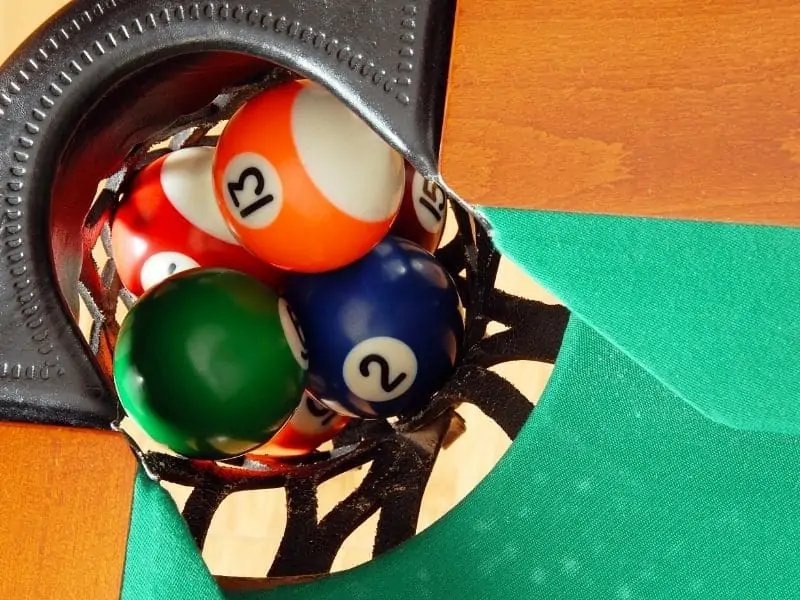
If you make ashot and sink your balllegally, by hitting it first, but an opponent’s ball also goes into a pocket, it is not considered a foul. It is considered a successful shot, meaning you get to keep shooting until you miss a shot or foul. Both balls stay pocketed. So, it’s not a foul, but you’re still helping out your opponent by potting his or her balls for them.
Most professional billiard organizations maintain this as a rule. However, some bar rules state that sinking an opponent’s ball results in the loss of your turn, even if the shot was legal and you potted one of your balls, as well. Other bar rules state that this instance is a foul, although this is not as common.
Only Sinking Your Opponent’s Ball (Legally and Illegally)
There are two major ways you can only sink an opponent’s ball: legally and illegally. Let’s cover the legal way first.
Legally
If you take a shot, hit one of your balls first, but end up sinking only one of your opponent’s balls, it’s technically legal. This is considered the same as a missed shot by most professional rulebooks. All that happens is that your turn is up and your opponent gets to shoot. Their ball remains in the pocket and they’re that much closer to winning.
Illegally
When this happens illegally, the cue ball contacts your opponent’s ball first on your shot. So if you’re stripes, you make contact with a solid ball first and end up potting it. It’s kind of like adding insult to injury when you illegally hit an opponent’s ball into a pocket. Because, even if you didn’t hit the ball into a pocket, you still fouled by hitting the ball from the wrong group first.
You lose your turn and, under most rules, the opponent gets ball in hand. Some bar rule versions state that this results in ball in hand behind the head string.
Hitting Both Balls at Once
In some rare instances, you may strike your ball and an opponent’s at the same time. It’s not the most common occurrence, but it can happen. In most cases, you as the shooter will be given the benefit of the doubt and the shot will be called legal.
So if you sink your opponent’s ball after hitting both balls at once, it will not be counted as a foul. Your turn ends (unless you also sunk your own ball) and the balls remain in the pockets.
Mistaking Your Opponent’s Balls for Your Own
Let’s face it, some people like to drink while playing pool. After a couple of rounds and a couple of games, it can be easy to forget which set is yours. You may be solids, but you start shooting stripes thinking they’re yours.
This has even happened to me when I was sober as a bird. Can’t blame it all on the alcohol. There are a couple of things that can happen when you or the opponent start shooting the wrong group.
When it becomes clear that you have been shooting the wrong balls by mistake, your turn is forfeit and the opposing player gets ball in hand. The balls you shot stay in the pockets count for the opposing player.
According to BCA rules, if either player plays more than one turn before the foul is realized, the balls are re-racked and the game replayed. The player that shot the break gets to break again.
But, if the game is finished without either player realizing they were shooting each other’s balls, the game stands as-is and is not replayed.
Conclusion
As you can see, there are some instances where shooting an opponent’s ball is a foul, and some where it’s not. However, potting an opposing player’s ball is kind of a foul in itself because you’re helping them out. It’s a case of being your own worst enemy. Still, it does happen to the best of us from time to time.
Now that you know what the rules say, you won’t be confused the next time you accidentally pocket another player’s ball, or if they pocket one of yours.
Other Articles You May Be Interested In
- What Is A Scratch In Pool? Rules for Scratching in Billiards
- How To Play Bank Pool: Its So Much Fun
- How to Hold a Pool Cue: A Simple Guide for Beginners
- What is English in Pool? A Simple Explanation
- How To Get Better At Pool: 22 Tips For Improving Your Game
